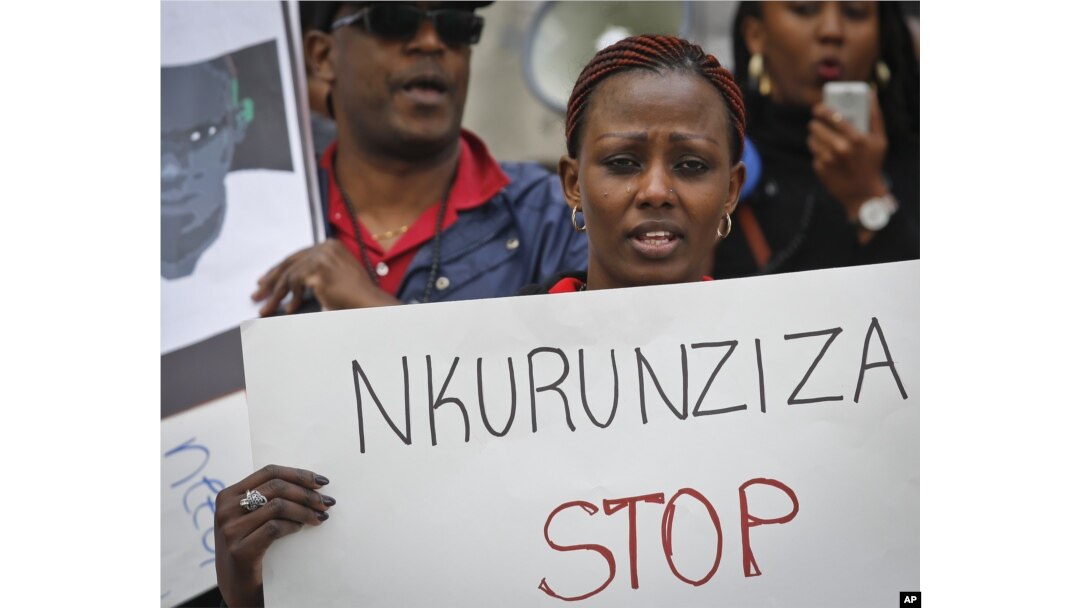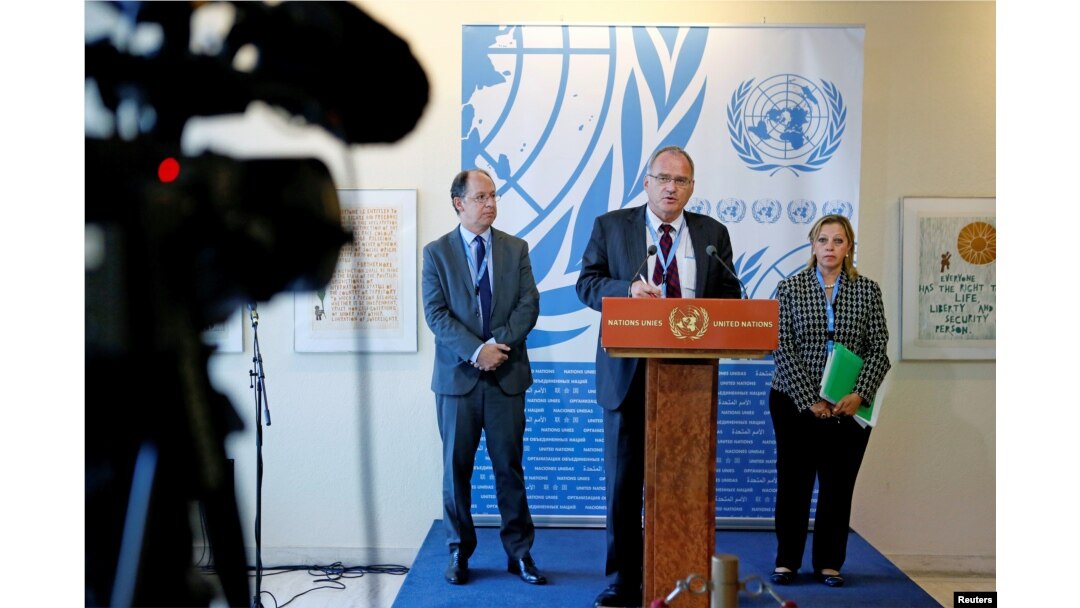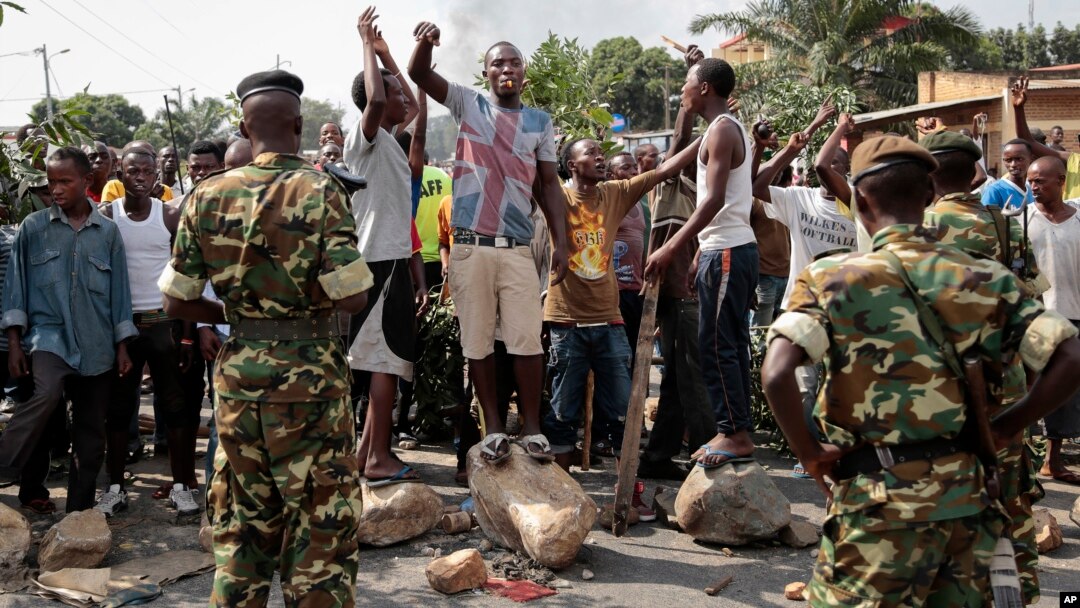Human rights groups warn the tiny African country of Burundi is at risk of genocide, calling for international action as they released a new report Tuesday that documents widespread abuses under the government of President Pierre Nkurunziza.
Burundi descending into chaos, pulled apart by ethnic hatred that fuels mass killings... even genocide. This is not happening right now, but a movie trailer released by rights groups under the hashtag #StopThisMovie suggests it is entirely possible.
"We’re not saying the genocide is coming now. We are explaining that all the mechanisms, all the intention and all the bodies of the repression are ready to commit a possible genocide," said Florent Geel, Africa director for the Paris-based umbrella group International Federation for Human Rights.

Burundi nationals from across the U.S. and Canada, along with supporters, demonstrate, calling for an end to atrocities, human rights violations in Burundi, outside U.N. headquarters in New York, April 26, 2016.
Violence, disappearances
A joint report with Burundian rights group ITEKA describes killings, tortures, rapes and disappearances in Burundi since popular protests erupted last year against President Pierre Nkurunziza’s bid for a third term.
The report says more than 1,000 people have died, hundreds have gone missing and thousands more are being detained or fleeing the country. It says many of the abuses were committed by youth militias and government security forces.
The groups are calling for an international peacekeeping mission and political dialogue to resolve the crisis.
"Each day, a few people are arrested, disappeared, are killed. This is not a massive violation where all the cameras are coming, but it’s a daily violation," said Geel.

U.N. Independent Investigation on Burundi independent experts (L to R) Pablo de Greiff, Christof Heyns and Maya Sahli-Fadel speak upon presenting a final report, Sept. 27, 2016.
Ethnic killings
ITEKA’s president, Anschaire Nikoyagize, currently lives in exile in Uganda, and he says a new government census counts among the tools aimed at getting Hutus to side with the government, and to turn a political conflict into an ethnic one — in a country scarred by a history of ethnic killings.
United Nations investigators also have warned of the risk of a genocide in Burundi, and the International Criminal Court is considering a full investigation into alleged atrocities. The government, which denies its forces are involved in abuses, recently announced it was pulling out of the ICC.


